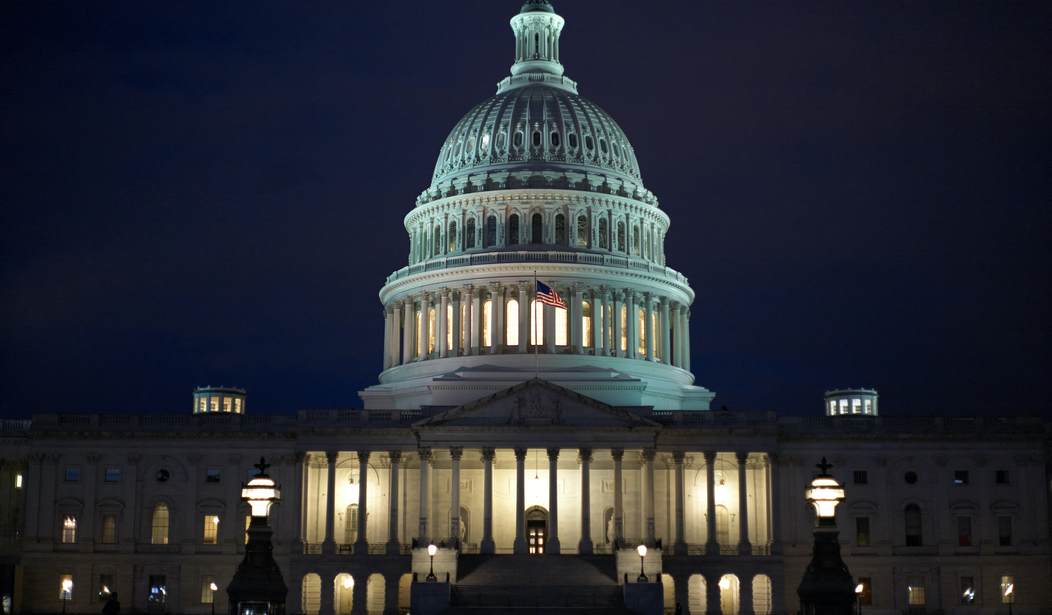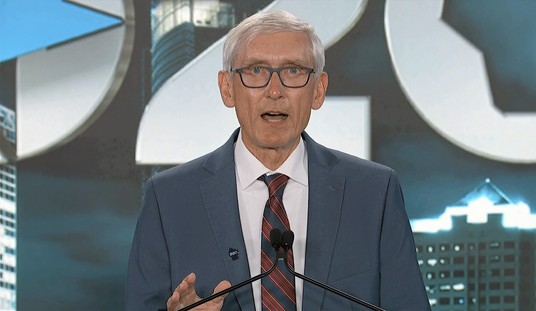We live in some rather partisan, divided times. It doesn't happen often, if it happens at all, that both parties find something to agree on, and agree on so strongly. On Tuesday, though, the U.S. Senate voted by unanimous consent in favor of the Sunshine Protection Act of 2021, proposed by Sen. Marco Rubio (R-FL), which would make Daylight Savings Time permanent.
The United States just recently went through a clocks change, by moving ahead an hour early on Sunday morning. As a result, we all lost an hour of precious sleep, and have had to adjust our week accordingly, though we do enjoy an extra hour of daylight.
When moving the clocks back again, in November, we'll get an extra hour of sleep, but it will get much darker, much earlier, as early as in the four or five o'clock hour.
"There's some strong science behind it that is now showing and making people aware of the harm that clock switching has. We see an increase in heart attacks and car accidents and pedestrian accidents in the week[s] that follow the changes," Sen. Rubio mentioned during floor remarks.
Meilan Solly, writing for Smithsonian Magazine, had even more:
Recommended
Supporters of adopting a fixed, year-round schedule point to the well-documented health and safety risks associated with changing the clocks. As the American Academy of Sleep Medicine noted in a 2020 statement, the spring shift to DST incurs “increased risk of adverse cardiovascular events, mood disorders and motor vehicle crashes.” On the Monday after the shift, reported Hilary Brueck for Insider last March, hospitals see a 24 percent jump in patients experiencing heart attacks. The Monday after the clock turns back in the fall, meanwhile, hospital heart attack visits drop 21 percent.
“That’s how fragile and susceptible your body is to even just one hour of lost sleep,” sleep expert Matthew Walker told Insider.
And, while it may be nice for the sun to come up earlier, a piece from Saffeya Ahmed for CNN noted it's "debated" as to if DST actually works:
While the practice can help reduce some energy consumption, critics have raised concerns of whether the amount of energy saved is worth the hassle of implementing the system around the world.
In 2008, the US Department of Energy found that the four-week extension of DST from April-October to March-November saved about 0.5 percent in total electricity every day. While that seems like almost nothing, it totals 1.3 billion kilowatt-hours and the DOE says that adds up to "the amount of electricity used by more than 100,000 households for an entire year."
But a study that same year by the National Bureau of Economic Research concluded that DST increases the demand for electricity -- even though lighting usage reduced, demand for heating and cooling increased, so electricity consumption was about the same.
Other studies have found that benefits of DST may be location-specific. One found electricity reductions in Norway and Sweden, while another saw increased electricity demand in Indiana.
The legislation would also mean those states that have seen the benefits of doing away with daylight savings time wouldn't be restricted by the federal government any longer.
As a press release from Sen. Rubio's office lays out:
In 2018, Florida legislature’s enacted year-round DST. However, for Florida’s change to apply, a change in the federal statute is required. Nineteen other states — Alabama, Arkansas, California, Delaware, Georgia, Idaho, Louisiana, Maine, Massachusetts, Minnesota, Mississippi, Montana, Ohio, Oregon, South Carolina, Tennessee, Utah, Washington, and Wyoming — have passed similar laws, resolutions, or voter initiatives, and dozens more are looking to do so.
If passed by the House and signed into law by President Joe Biden, the Sunshine Protection Act would apply to those states that currently participate in DST, which most states observe for eight months out of the year. States and territories that currently remain on Standard Time year-around would continue to do so. Many studies have shown that making DST permanent could benefit the economy and the country. A one-pager of the bill is available here.
In addition to the support from the U.S. Senate, making DST permanent also has support from a majority of the American people.
As Solly also added:
[Senator Patty] Murray’s words echo sentiments shared by a broad swath of Americans. A 2019 poll conducted by the Associated Press-NORC Center for Public Affairs Research found that 70 percent of people surveyed wanted to end the practice of changing the clocks. Approximately 40 percent advocated for staying on standard time year-round, while 30 percent preferred sticking to daylight saving time. Beth Ann Malow, a neurologist at Vanderbilt University Medical Center, outlines the case for standard time in the Conversation, writing that it more “closely approximates natural light, with the sun directly overhead at or near noon. In contrast, during [DST] from March until November, the natural light is shifted unnaturally by one hour later.”
History may be repeating itself from the 1970s in even more ways than one. "Year-round daylight saving time (DST), signed into law by President Richard Nixon in January 1974, sought to maximize evening sunlight and, in doing so, help mitigate an ongoing national gas crisis," Solly also noted.
It appears the country went back to the change, and became less popular, because students were going to school while it was still dark out, which even resulted in deaths. Such was not just a question in the 1970s, but today, over Twitter, as well.
Permanent Daylight Savings Time is taking steps closer to being a reality. I hate changing the clocks 2x a year as much as everyone else, but this is a much-overlooked cost to abandoning standard time in the winter. Even elementary kids going to school in darkness. #wawx pic.twitter.com/MrrLKtIjnA
— Scott Sistek (@ScottSeattleWx) March 16, 2022
By making DST permanent, kids will now go to school in pitch black darkness for much of the year. Isn't that reason enough not to do this? Some real safety concerns there. Also not psychologically healthy for the kids.
— Matt Walsh (@MattWalshBlog) March 16, 2022
A lot of people these days think permanent DST is a good idea. The US tried it in the early ‘70s and people grew to HATE it.
— Andrew Beaujon (@abeaujon) March 15, 2022
Most common complaint? Kids had to go to school in the dark, and there were lots of dangerous, even fatal accidents. https://t.co/t5q41N4aOb https://t.co/x9Atuu0okr
Sen. Rubio had a response to that too.
The argument that it will be took dark in the morning kids if we make #DaylightSavingTime permanent ignores the fact that we are already on it for 36 of the 52 weeks a year
— Marco Rubio (@marcorubio) March 16, 2022
It’s time to #LockTheClock
If the legislation passes the U.S. House of Representatives and is signed into law by President Joe Biden, it won't take effect until November 2023. This is to give the transportation industry the time it's requested to make adjustments.
Sen. Rubio also acknowledged in his floor remarks that "I know this is not the most important issue confronting America, but it's one of those issues where there's a lot of agreement."
End the Madness of Clock Changing Every 6 Months! https://t.co/xlDUGsUdJa I am excited the US Senate followed my advice today & voted unanimously to extend Daylight Saving Time year-round. No more clock changing & ruining our sleep. Finally, the US Senate deserves some credit!
— Jeff Crouere (@jeffcrouere) March 16, 2022
Jeff Crouere's Monday column for Townhall opposing Daylight Savings Time generated quite a bit of discussion as well.

























